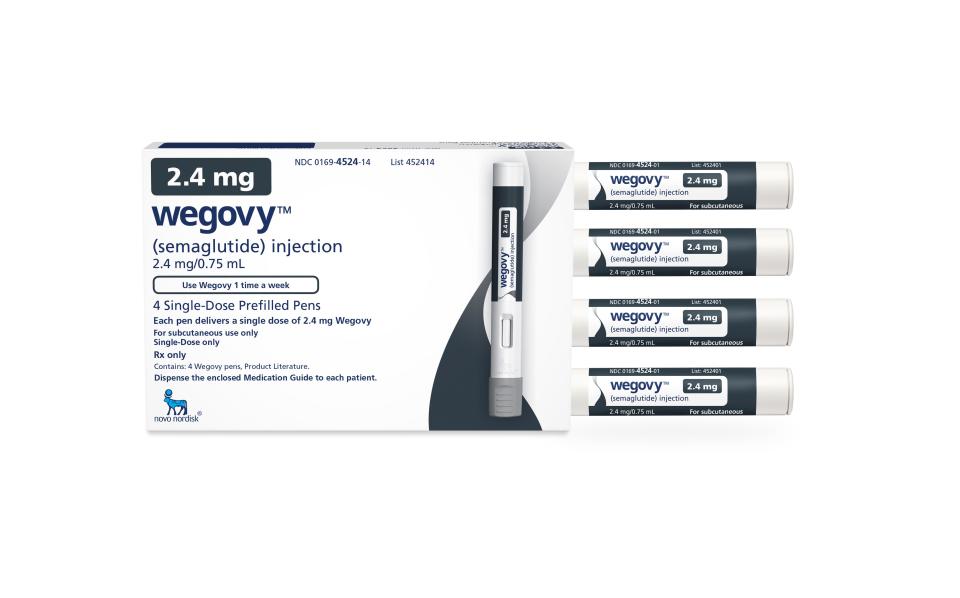Study: Indiana ranks among fattest states, which comes with $9.3B economic hit.
Indiana ranks in the nation’s Top 10 fattest states, according to a new survey.
All those extra pounds come at a cost — a $9.3 billion hit to the state’s economy in 2022, or about 2% of the gross domestic product, according to a new report supported by Eli Lilly and Co.
London-based GlobalData report finds that in Indiana, where 36.3% of adults self-report as obese and 33.3% overweight, obesity accounts for 69,400 fewer adults in the workforce because of obesity-related unemployment and early deaths. Medical conditions and complications that stem from obesity added up to an extra $1.2 billion in medical spending for employers, the report found.

Others are reading: A new Tesla facility is under construction in Indy. Find out where and what they'll do there.
While Lilly has asked the Food and Drug Administration to approve one of its newer diabetes drugs for chronic obesity treatment, Lilly officials said the company supported the report to raise awareness of the toll that obesity takes on the state as well as on those who struggle with their weight.
“Because of a lot of the stigma and bias around obesity, people don't have good coverage and I think it's really important for the state, the workers, Indiana employers like Lilly to really reflect on that system,” said Mike Mason, president of Lilly Diabetes and Obesity. “People need to understand that this is a chronic disease and it has a big economic impact.”
Similar reports focusing on states such as Iowa, New York, Texas and South Carolina will follow but Lilly started with Indiana because that is the company’s home, Mason said.
If Indiana did not lose 2% of its gross domestic product due to the costs associated with obesity, the state would have an additional $216.9 million in consumptions sales tax revenues and $31.2 million in business tax, the study found. Employers lose $901 million for health-related absenteeism and disability connected to obesity.
COVID-19 booster: What you need to know
New weight loss drugs
No easy answers exist as to how to best fight obesity. Behavioral modifications like diet and exercise help some people, Mason said, but they will not necessarily help everyone who struggles with unhealthy weight.Two years ago the FDA approved Wegovy, a sister to diabetes drug Ozempic, for weight loss. These two drugs — neither made by Eli Lilly — have become popular among the rich and famous as the latest quick weight loss trend.
Lilly has also submitted an application to the FDA to approve its drug tirzepatide (currently on the market as Mounjaro for diabetes treatment) after trials showed a minimum of a 12.8% loss in body weight for those who took it. The company says regulatory action could come as early as late this year.The company also has two other products for weight loss that have just entered the final stage of clinical studies, which take between two to four years to complete, Mason said.
Employers not sure anti-obesity drugs are worth cost
Employers who provide employer-sponsored insurance, however, have already noticed more employees on these medications, said Gloria Sachdev, president and CEO of the Employers’ Forum of Indiana, an employer-led health care coalition. Many employers are evaluating whether these drugs produce employee weight loss that improves chronic conditions such as diabetes, high blood pressure and high cholesterol, decreasing the overall need for costly medications.
However, for now, employers have seen that the popularity of these weight loss drugs has resulted in “dramatic cost increases,” Sachdev said in an email.
Employers are analyzing prescription and medical data to “better understand the cost-benefit,” looking at side effects and determining whether employees will sustain their weight loss once they discontinue these medicines, she said.
The RSV vaccine: What you need to know.
But others suggest that the new report may shed critical light on the cost of obesity for the state and maybe shift the way employers approach the issue.
Some employers, for instance, may cover bariatric surgery but not weight loss medication, said Jennifer Pferrer, executive director of the Wellness Council of Indiana, a subsidiary of the Indiana Chamber that works with employers and communities on strategies to improve well-being.
“Employers are really striving to come up with solutions and better understand how this is impacting their bottom line,” she said. “Employers are being asked to potentially cover new resources. We need to educate employers so they can make the best decision for their workforce…. Employers have to think about, 'Am I willing to pay for it?'”
Currently, many employers and insurers have demonstrated reluctance to underwrite the costly medications, which many think will need to be taken on a long-term basis, just the way one takes medicine for many other chronic diseases. Medicare and Medicaid do not cover anti-obesity treatment nor do between five to six out of 10 employers, Mason said.
That’s despite the fact that there are more than 230 health-related complications associated with obesity. Obese people have a 243% greater chance of getting type 2 diabetes, a 69% greater risk of heart disease, and a 113% greater risk of hypertension, Mason said.
Contact reporter Shari Rudavsky at srudavsky@gannett.com
This article originally appeared on Indianapolis Star: Indiana ranks among fattest states, a 9.3B economic hit, study says

